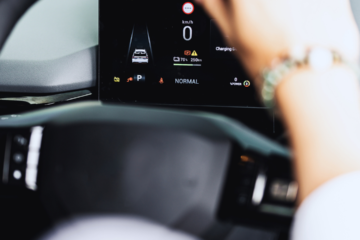How to Buy a Used Car Without Getting Scammed: Essential Tips for Savvy Shoppers

Buying a used car can be a daunting experience, especially with the prevalence of scams in the market. Understanding the key steps to avoid pitfalls is crucial for any buyer. Researching the vehicle’s history, inspecting it thoroughly, and being aware of common scams can empower buyers to make informed decisions.
While online listings can be convenient, they often contain red flags. Buyers should always verify the legitimacy of the seller and the accuracy of the listing. Gathering necessary documentation, such as maintenance records and vehicle reports, can also protect against potential fraud.
When you are browsing through different cars for sale, make sure to approach each listing with a critical eye. Many online platforms can offer different types of vehicles, but not all listings are created equal. Taking the time to research and compare different options can help you in finding the best deal. Preparation is vital in the car-buying process. By knowing what to look for and which questions to ask, individuals can reduce the risks associated with purchasing a used vehicle. Being informed and vigilant leads to a safer and more satisfactory buying experience.
Understanding the Used Car Market
Navigating the used car market requires familiarity with reliable sources and a clear understanding of available vehicle options. Key considerations include where to purchase and the potential advantages of certified vehicles.
Identifying Reliable Sources
When looking for a used car, choosing trustworthy platforms is essential. Common options include:
- Facebook Marketplace: Users can find local listings, but must remain vigilant for scams. Researching sellers and verifying the vehicle’s history is crucial.
- eBay Motors: Offers a wide range of vehicles with options for bidding or buying outright. Read seller reviews and check the car’s identification number (VIN) for its history.
- Craigslist: Another popular platform for private sales. Users should meet sellers in public places and consider bringing a mechanic to inspect the vehicle.
Additionally, reputable used car dealerships can provide a range of cars with guarantees and customer service support. It’s important to cross-check prices and features across different sources.
Benefits of Certified Pre-Owned Vehicles
Certified Pre-Owned (CPO) vehicles offer advantages for buyers seeking peace of mind. They come with thorough inspections and often include warranties.
- Inspection Standards: CPO vehicles undergo rigorous checks, ensuring they meet specific manufacturer criteria. This reduces the likelihood of hidden issues.
- Warranties: Most CPOs come with extended warranties, covering major repair costs for a certain period. This can add significant value and confidence to the purchase.
- Financing Deals: Many manufacturers provide special financing offers for CPO vehicles, making them more accessible.
Overall, CPO vehicles represent a blend of reliability and cost-effectiveness, making them a strong option in the used car market.
Conducting Thorough Research
Researching a used car is essential to avoid scams. Knowledge of a vehicle’s history, condition, and any potential red flags can empower buyers. Critical tools include vehicle history reports and VIN checks.
Deciphering Vehicle History Reports
Vehicle history reports provide crucial insights into a car’s past. Companies like Carfax and AutoCheck compile data from various sources, including insurance companies and service shops.
Key details to look for include:
- Accident History: Look for any reported accidents, as these can impact the vehicle’s structural integrity.
- Title Status: Ensure the title is clean and not marked as salvage or rebuilt.
- Odometer Rollback: Check for discrepancies in mileage. An odometer rollback suggests potential fraud.
- Service Records: Review maintenance history to assess how well the vehicle has been cared for.
Buyers should review multiple reports if available for accuracy.
The Importance of VIN Checks
A VIN check complements vehicle history reports by providing unique identification. Each vehicle has a 17-character VIN that encodes specific details about the car, such as make, model, and year.
Performing a VIN check helps verify:
- Ownership History: Confirm the current owner is indeed the rightful owner.
- Stolen Status: Check if the vehicle has been reported stolen.
- Recalls: Discover any manufacturer recalls that have not been addressed.
Many websites offer free or low-cost VIN check services. Utilizing these tools enhances buyer confidence and helps identify potential issues before purchase.
Avoiding Common Scams and Pitfalls
When purchasing a used car, it is essential to identify potential scams and avoid common pitfalls. Understanding the various types of fraudulent activities can help ensure a safe and satisfactory purchase.
Recognizing and Avoiding Scams
Buyers should be aware of several common scams in the used car market. Odometer fraud occurs when a seller rolls back the mileage, making the car appear less used than it is. Verification using a vehicle history report can help detect this.
Title washing is another serious issue. It involves altering or removing negative information from a car’s title. Buyers should always check if the title is clean and matches the VIN.
Curbstoning refers to dealers pretending to be private sellers. Inspecting the vehicle’s condition and asking for detailed documentation can help identify this tactic. Always trust instincts about any seller exhibiting suspicious behavior.
How to Handle Financial Transactions Safely
Ensuring safe financial transactions is crucial during the purchase process. Buyers should avoid using cash or wire transfers, as these methods can be associated with scams, such as the must sell now scam or wire transfer scams. Instead, consider using a reputable payment method like a bank check.
It’s also important to ensure that your financing has been taken out through a reputable company. This can be a bank loan or Title Loans through professional private lenders. Using escrow services can provide an additional layer of protection. A legitimate escrow service holds funds until both parties meet agreed-upon conditions. Be cautious of fake escrow services that can lead to fraud.
Always meet in a safe, public location for test drives and transactions. It minimizes risks associated with third-party scams and allows for safer interactions.
Finalizing Your Purchase
Before completing a used car purchase, it is crucial to ensure that the vehicle is in good condition and to have a clear understanding of the financial aspects. Careful consideration will help prevent issues down the road.
Inspecting and Test-Driving the Car
A thorough inspection and test drive are vital steps in the buying process. Potential buyers should examine the vehicle’s exterior and interior for any signs of damage or wear.
They should look closely at:
- Tires: Check for even wear and adequate tread.
- Engine: Listen for unusual noises.
- Leaks: Inspect under the car for any fluid leaks.
During the test drive, the buyer should pay attention to how the car handles. It is advisable to drive on different types of roads and at various speeds. If possible, she should engage a trusted mechanic for a pre-purchase inspection. This can uncover hidden issues that could lead to future expenses.
Securing Financing and Making Payments
Understanding financing options is critical. Buyers should gather information on down payment requirements, interest rates, and loan terms. They should check their credit score as it influences the financing available.
Buyers can explore:
- Credit unions: Often provide favorable rates.
- Banks: May offer competitive loans.
- Dealership financing: Sometimes less advantageous, so caution is needed.
When ready to make a payment, ensure it aligns with the best deal available. If the terms seem unfavorable or the buyer feels uncomfortable, it is wise to walk away from the deal. Making informed decisions at this stage can save significant money in the long run.



0 Comments